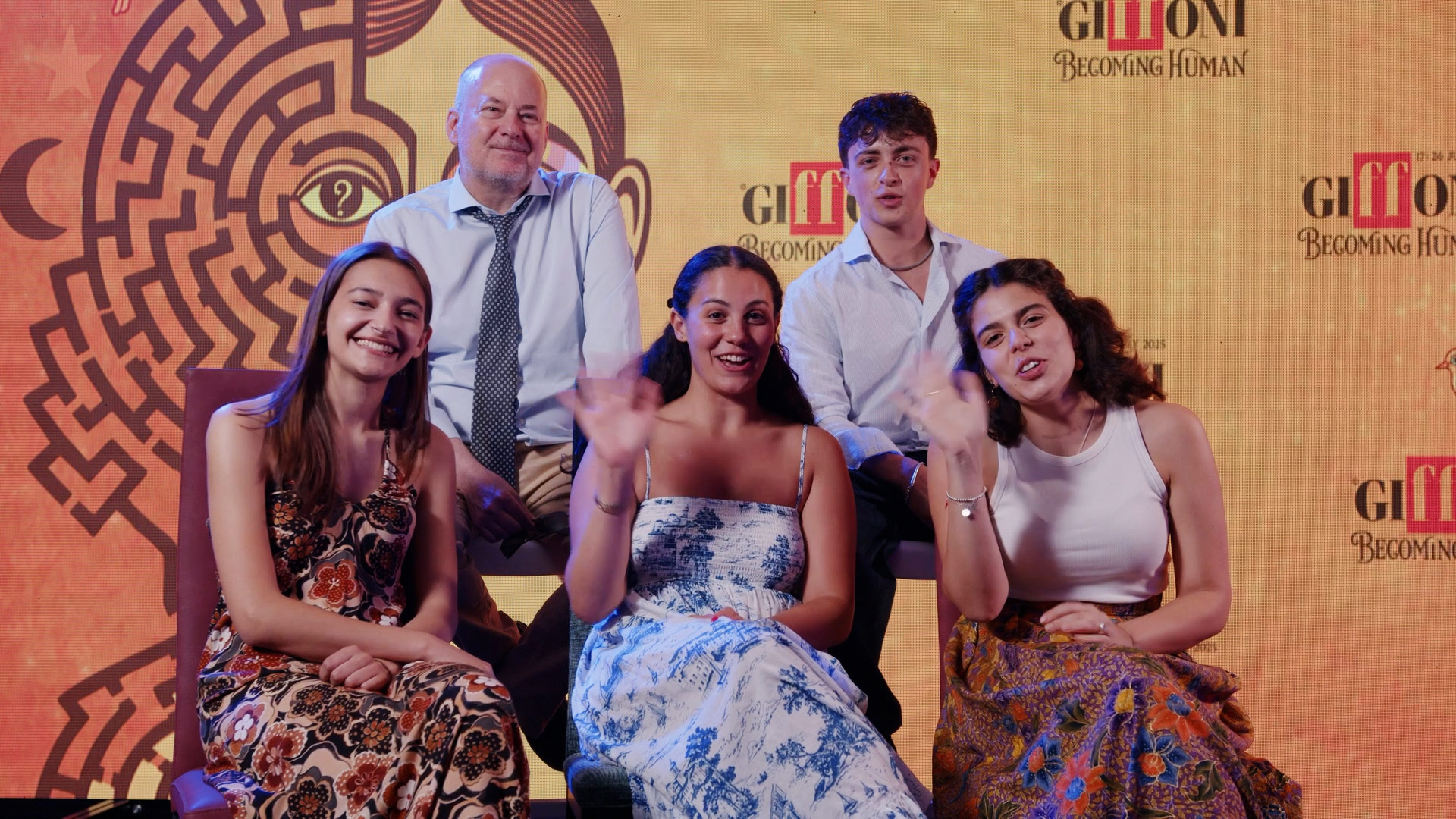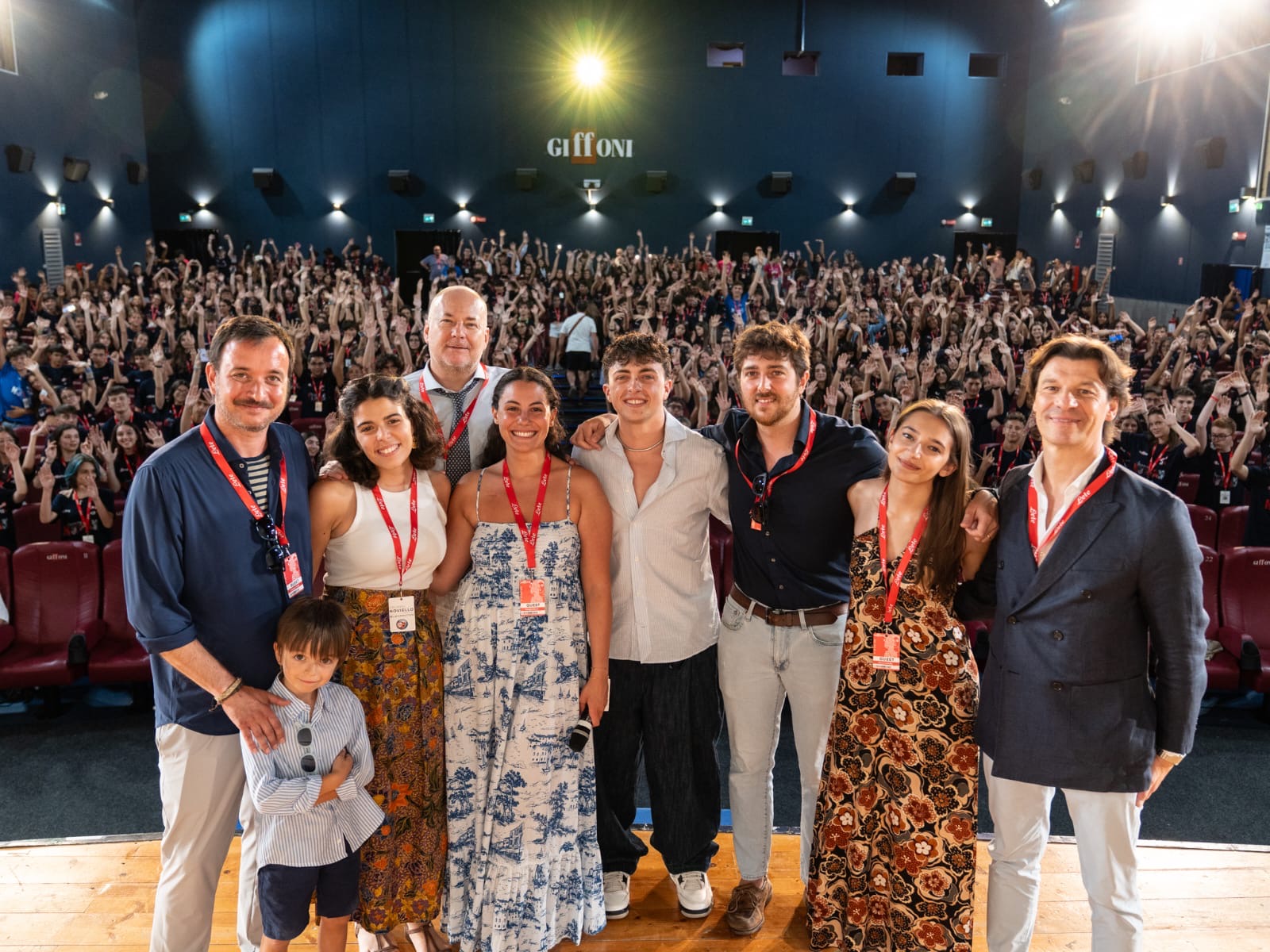Cancer and Adolescence: Acting Out Pain with Irony

We've heard so many stories. But some enter silently and remain. Like those of the young people from the Youth Project at the National Cancer Institute (Istituto Nazionale dei Tumori Int.) in Milan , who, with their sitcom "Ho Prendi un Granno" (I Got a Crab), brought to the Giffoni Film Festival not only the fruit of a creative workshop, but a humane, ironic, and powerful manifesto on what it means to go through illness—and to relearn to laugh, despite the pain and fear.
The young people being treated at the Institute's Pediatric Oncology Unit, directed by Maura Massimino , really "got it wrong." But they've transformed it into theater, music, video, and now a brilliant series, written and performed by young cancer patients, which landed at the 55th edition of Giffoni with an unreleased episode, filmed in the Caduta Libera studios with Gerry Scotti. And there, in the Truffaut Room, we didn't just see a video: we breathed a new way of telling our stories. Without rhetoric. With the courage of those who smile—or even laugh—while fighting.

"When I was diagnosed with cancer, I felt tremendous pressure," says Riccardo , creator and protagonist of the episode presented at Giffoni. "So I created the C-Card, the Cancer Card : a kind of wild card to use when everything is too much. A tongue-in-cheek weapon. With that card I could skip tests, convince my mom to buy me a Mac, choose the front seat in the car with friends. No one says no to a 16-year-old with cancer ." It sounds like a joke. And it is. But it's also a very lucid way to take control of the narrative of one's illness, reverse roles, regain a space of power where there seems to be only vulnerability. Riccardo has finished treatment today, but he returns to the ward every Wednesday. "The Youth Project has become a commitment, a responsibility. We former patients go there to bring something to others. Sometimes even just to be together, and that shared time is something that truly heals."
The Youth Project has become a responsibility. We former patients go there to give something to others.
Richard
Giorgia also brought her voice to Giffoni. For her, stepping onto the Truffaut stage "was like experiencing something I couldn't even imagine before. For the first time, I wasn't talking about the illness: I was talking about a series, a creative project. I felt free ." In the Youth Project, Giorgia found much more than a laboratory. "When you're undergoing treatment," she says, "it feels like everything else stops. But in there, in that room, something is created. Beauty is created. And the extraordinary thing is that you can be fragile and powerful at the same time. In a sitcom, you can laugh at yourself and finally feel understood."
For the first time, I wasn't talking about the disease but about a creative project. I felt free.
Georgia
The deus ex machina of the Youth Project is Andrea Ferrari, a doctor at Int: "We've learned so much from our young people over the years. We've learned that our knowledge and our treatment protocols are certainly essential, but they're not enough . We must put our heart and soul into it, learning to be close to our patients not just as doctors, but as adults whose profession means they walk alongside young patients at this very special time in their lives. There's a completely different way of thinking about the doctor-patient relationship in our department . Here, care is truly humanized. All the professionals—doctors, nurses, psychologists, educators—have a different spirit."
We have learned a lot from our children, including that our treatment protocols, while certainly fundamental, are not enough.
Andrea Ferrari
Ferrari recalls how this approach, which characterizes the Youth Project, has allowed the initiative to become a model for other pediatric oncology settings. At Int, there is "a team that for 15 years has been building something new, every year. Against any profit logic , with the aim of giving young people a voice. In a healthcare system that often values only what generates numbers and reimbursements , we continue to focus on listening," says Ferrari. "With gratitude to those who make all this possible, in a public hospital capable of investing time, energy, and space in a project like this ."

Which is crucial from another perspective as well, that of bridging the clinical gap that often characterizes adolescence, a middle ground between pediatrics and adult oncology. " For too long, adolescents with cancer have been stuck in a 'middle ground,'" explains Ferrari, " neither child nor adult, often excluded from specific protocols. Our job is to build pathways that take into account the biology of the tumor, not just their chronological age, and to offer these young people the best possible care, along with a space where they feel seen, recognized, and supported ."
The sitcom "Ho preso un gabbia," produced by the Bianca Garavaglia Foundation (ETS) (a longtime promoter of Progetto Giovani initiatives) and promoted by Mediafriends, has become a model abroad. It has been recognized by the European Society of Pediatric Oncology (SIOP Europe) as an effective form of therapeutic support. The second season will air this fall on Mediaset channels.
Photo by Int
Vita.it





